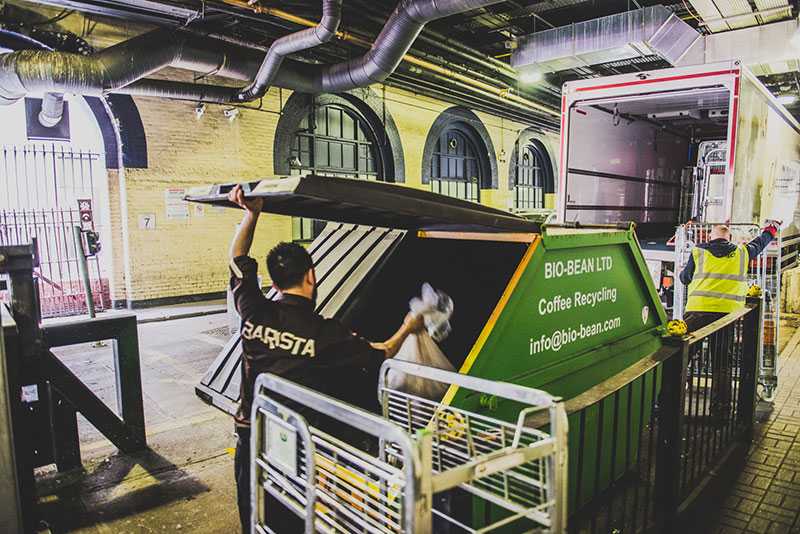By British law, hourly levels of toxic nitrogen dioxide should not exceed 200 micrograms per cubic meters more than 18 times in a whole year. In early January 2017, this limit was broken on Brixton Road in Lambeth, a district in Central London.
Produced largely by diesel vehicles, nitrogen dioxide causes 5,900 early deaths every year in the British capital.
Taking his time to figure a way out of this “public health emergency” as termed by members of parliament, founder of bio-bean Arthur Kay has found an alternative to fossil fuel to power London’s iconic buses – coffee waste.
London produces 200,000 tons of coffee waste each year, and Kay found potential in this number. bio-bean’s factory can recycle up to 50,000 tons of waste grounds annually. High street cafés and factories across the kingdom provide bio-bean with their coffee waste so they can process it to extract oil.
Mixed with other fats and oils to create a 20 percent bio-component, this is then mixed with mineral diesel to create a coffee-derived B20 biofuel. bio-bean’s unmodified biofuel is then used to power a number of London buses.
The project is being implemented in partnership with energy giant Shell, which is working closely with bio-bean to develop a sustainable transport fuel.
Coffee makes up a component of the bio-fuel used in selected London buses today. But as a pure-blend, the 6,000 liters (1,585 gallons) of coffee oil provided in this project by bio-bean would be enough to help power a bus for a year, Shell estimates. On a larger scale, London produces enough coffee waste to help fuel around a third of the London bus network.
This is not the first time Britons have though out-of-the-box when powering buses in their cities.
In Autumn of 2014, UK’s first poo bus took off in Bristol, running – as the name suggests – on human stool, along with household waste.
Powered by biomethane gas, the “Bio-Bus,” which seats 40 passengers, uses waste from more than 32,000 households along its 15-mile (24-kilometer) route.







